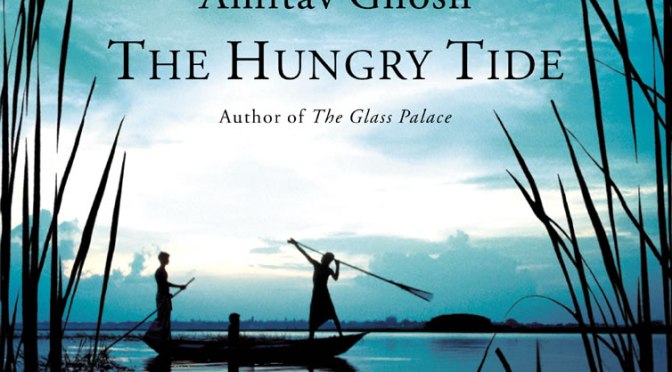Selling Nature to Humanists and Humanity to Environmentalists: Existence and Co-existence in Amitav Ghosh’s The Hungry Tide
–Petrie Meyer, University of Stellenbosch
Smile O voluptuous cool-breath’d earth!
Earth of the slumbering and liquid trees!
Earth of departed sunset—earth of the mountains misty-topt!
Earth of the vitreous pour of the full moon just tinged with blue!
Earth of shine and dark mottling the tide of the river!
Earth of the limpid gray of clouds brighter and clearer for my sake!
Far-swooping elbow’d earth—rich apple-blossom’d earth!
Smile, for your lover comes.
-Walt Whitman – Song of Myself
The indeterminate, fluid space of the Sundarbans in southern Bangladesh, where land and sea constantly yield to each other in a daily, elemental cycle, is the space Amitav Ghosh chooses to situate his 2005 novel, The Hungry Tide. This river delta, consisting of innumerable islands which appear and disappear according to the whims of tides and seasons, “a terrain where the boundaries between land and water are always mutating, always unpredictable” (18), is a landscape in which the sea, the river, the land, humans and animals all co-exist – sometimes in harmony, but often in competition. Within this space Ghosh, with the same beautiful sensitivity and balance with which he brings together cultures in An Antique Land, presents an environmental issue which has come to be recognized as one of the fundamental problem areas in conservationism – an issue Robert Cribb calls the “acute conflict” between conservation and human rights (Huggan and Tiffin, 4). In this conflict, a battle line has come to be been drawn between environmentally conscious groups fighting on the side of non-human nature, and human-rights groups on the side of the poor, the dispossessed and underdeveloped peoples of the world, with precious little middle ground being acknowledged by either side. The Hungry Tide, with its complex mixture of people and landscape, steps into this conflict with an implied plea for moderation to both sides – a plea for the acknowledgement and understanding of the plight of the poor by environmentalists, and that of animals and nature by human-rights groups. To achieve this, Ghosh uses human history, human relationships and the desperation of human survival in a hostile natural environment to highlight the ‘humane’ in humanity and remind environmentalists of their own human nature, and myth and descriptions of the landscape, together with the plight of the endangered Ganges dolphin and tiger, to highlight the elemental, beautiful and fragile in Nature, in that way reaching out to the innate sense of connection that humans have with nature.
Continue reading Petrie Meyer on Amitav Ghosh’s The Hungry Tide


